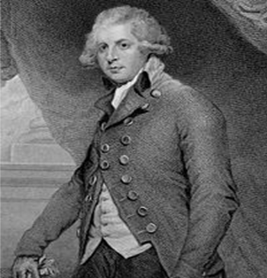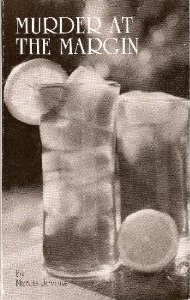Related Research Articles
Neoclassical economics is an approach to economics in which the production, consumption, and valuation (pricing) of goods and services are observed as driven by the supply and demand model. According to this line of thought, the value of a good or service is determined through a hypothetical maximization of utility by income-constrained individuals and of profits by firms facing production costs and employing available information and factors of production. This approach has often been justified by appealing to rational choice theory.

Alfred Marshall was an English economist, and was one of the most influential economists of his time. His book Principles of Economics (1890) was the dominant economic textbook in England for many years. It brought the ideas of supply and demand, marginal utility, and costs of production into a coherent whole. He is known as one of the founders of neoclassical economics.

Marie-Esprit-Léon Walras was a French mathematical economist and Georgist. He formulated the marginal theory of value and pioneered the development of general equilibrium theory. Walras is best known for his book Éléments d'économie politique pure, a work that has contributed greatly to the mathematization of economics through the concept of general equilibrium. The definition of the role of the entrepreneur found in it was also taken up and amplified by Joseph Schumpeter.

Eleanor Alice Hibbert was an English writer of historical romances. She was a prolific writer who published several books a year in different literary genres, each genre under a different pen name: Jean Plaidy for fictionalized history of European royalty and the three volumes of her history of the Spanish Inquisition, Victoria Holt for gothic romances, and Philippa Carr for a multi-generational family saga. She also wrote light romances, crime novels, murder mysteries and thrillers under pseudonyms Eleanor Burford, Elbur Ford, Kathleen Kellow, Anna Percival, and Ellalice Tate.
John Dickson Carr was an American author of detective stories, who also published using the pseudonyms Carter Dickson, Carr Dickson, and Roger Fairbairn.

Richard Cantillon was an Irish-French economist and author of Essai Sur La Nature Du Commerce En Général, a book considered by William Stanley Jevons to be the "cradle of political economy". Although little information exists on Cantillon's life, it is known that he became a successful banker and merchant at an early age. His success was largely derived from the political and business connections he made through his family and through an early employer, James Brydges. During the late 1710s and early 1720s, Cantillon speculated in, and later helped fund, John Law's Mississippi Company, from which he acquired great wealth. However, his success came at a cost to his debtors, who pursued him with lawsuits, criminal charges, and even murder plots until his death in 1734.

Donald Edwin Westlake was an American writer with more than one hundred novels and non-fiction books to his credit. He specialized in crime fiction, especially comic capers, with an occasional foray into science fiction and other genres. Westlake created two professional criminal characters who each starred in a long-running series: the relentless, hardboiled Parker, and John Dortmunder, who featured in a more humorous series.
Henry Ludwell Moore was an American economist known for his pioneering work in econometrics. Paul Samuelson named Moore as one of the several "American saints in economics" born after 1860.
Michael Collins is the best-known pseudonym of Dennis Lynds, an American author who primarily wrote mystery fiction.

Lawrence Block is an American crime writer best known for two long-running New York-set series about the recovering alcoholic P.I. Matthew Scudder and the gentleman burglar Bernie Rhodenbarr. Block was named a Grand Master by the Mystery Writers of America in 1994. Block has written in the genres of crime, mystery, and suspense fiction for more than half a century, releasing over 100 books.

Murder at the Margin (1978) is a whodunnit written by U.S. economists William Breit and Kenneth G. Elzinga using the joint pseudonym Marshall Jevons. The novel introduces Harvard economist Henry Spearman, a small, middle-aged, balding man who, when faced with murder, turns into an amateur sleuth who solves crimes by means of economic reasoning.
Cheryl Arguile is an American writer who also writes under her maiden name Cheryl Lanham and the pseudonyms Sarah Temple and Emily Brightwell.

John Franklin Bardin was an American crime writer, best known for three novels he wrote between 1946 and 1948.

The Fatal Equilibrium is a mystery novel published under the pen name Marshall Jevons but actually written by William L. Breit and Kenneth G. Elzinga, both of whom are professors of economics. The book introduces many examples of economics theory and has been used as supplementary reading in many introductory courses in economics.
Detective Inspector William Edward "Jack" Frost, GC QPM, is a fictional detective created by R. D. Wingfield—characterised as sloppy, untidy, hopeless with paperwork—but unmatched at solving mysteries. The character has appeared in two radio plays, ten published novels, and a TV series spanning 42 episodes between 1992 and 2010.

Marijane Agnes Meaker was an American writer who, along with Tereska Torres, was credited with launching the lesbian pulp fiction genre, the only accessible novels on that theme in the 1950s.
Kenneth G. Elzinga is the Robert C. Taylor Professor of Economics at the University of Virginia. He is an antitrust expert and co-authored a highly successful quartet of murder mystery novels in which the sleuth, dubbed Henry Spearman, solves the murder using principles of economics.
In economics, marginal utility describes the change in utility of one unit of a good or service. Marginal utility can be positive, negative, or zero. Negative marginal utility implies that every additional unit consumed of a commodity causes more harm than good, leading to a decrease in overall utility. In contrast, positive marginal utility indicates that every additional unit consumed increases overall utility.
Kathy Lynn Emerson is an American writer of historical and mystery novels and non-fiction. She also uses the pseudonyms Kaitlyn Dunnett and Kate Emerson.
William Breit (1933–2011) was an American economist, mystery novelist, and professional comedian. Breit was born in New Orleans. He received his undergraduate and master's degrees from the University of Texas and his Ph.D. from Michigan State University in 1961. He was an Assistant and associate professor of economics at Louisiana State University (1961–1965) On the recommendation of Milton Friedman he was interviewed and hired at the University of Virginia where he was Associate Professor and Professor of Economics (19651983). He returned to his San Antonio as the E.M. Stevens Distinguished Professor of Economics at Trinity University in 1983 and retired as the Vernon F. Taylor Distinguished Professor Emeritus in 2002. He is considered an expert in the history of economic thought and anti-trust economics. He established the Nobel Laureate Lecture Series at Trinity University and is most notable as a mystery novelist where their murder mysteries are solved by applying basic economic principles.
References
- ↑ Jaffee, Michelle Koidin. "The Secret Life of Ken Elzinga: Professor has written four murder mysteries under a pseudonym". Virginia Magazine. Retrieved 2024-07-15.